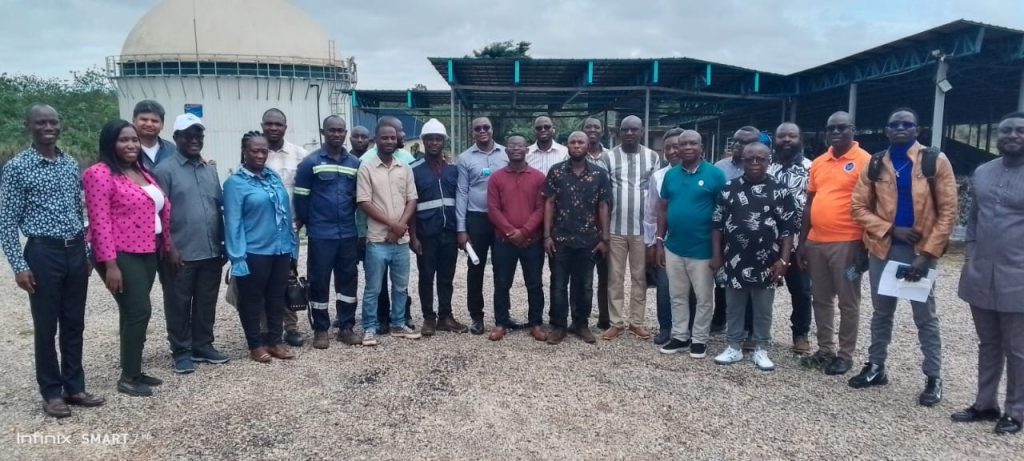By Yussif Ibrahim
Gyankobaa (Ash), Sept. 29, GNA – The West African Science Service Centre on Climate Change and adapted Land Use (WASCAL), has organised a site visit for a team of officials from stakeholder institutions to its Waste-2-Energy project site at Gyankobaa in the Atwima Nwabiagya South Municipality.
The team embarked on the visit to familiarise themselves with the facility’s operations ahead of a two-day workshop to discuss exit and sustainability plans for the project.
Representatives from the Ministries of Energy, Environment, Science and Technology, Local Government, Sanitation, as well as private waste management companies, were taken through the various processes of the facility to learn at first hand, how solid waste was being converted to energy through technology.
With funding from the German Government through the Federal Ministry of Education and Research, WASCAL is implementing the project, which seeks to segregate and convert various waste fractions into energy using biogas plants, pyrolysis, and solar PV systems.
Other partners include the Kwame Nkrumah University of Science and Technology, Kumasi Technical University, University of Renewable Energy and Natural Resources, Ministry of Environment, Science, and Innovation, Institute of Industrial Research of the Council for Scientific and Industrial Research (CSIR-IIR), among others.
The overall goal of the project is to undertake research and development and capacity building, develop concept for waste segregation and conversion of various Municipal solid waste into energy.
Dr Bruno Korgo, Regional Coordinator of the Renewable Energy and Green Hydrogen at WASCAL, said the project was designed to demonstrate various technologies of waste treatment and applications in terms of energy production.
He said the volumes of waste that was received daily at the facility was a testimony of how the project was addressing sanitation challenges in the Municipality.
The visit of the team, according to him, formed part of exit and sustainable plans by exposing the model to key stakeholders to ensure continuity and replication of the concept in other regions, saying that funding for the project would end one day.
“The idea of the project was to demonstrate and also develop innovative and functioning business models that could serve any other operator or responsible organisation whether public or private working in waste management and energy sectors,” he stated.
He said the next step of the project was to find a model to run the plant by any private or public company in a sustainable manner.

Dr Mutala Mohammed, a Research Scientist at CSIR-IIR, said one of the biggest challenges was the non-segregation of the waste because the main interest of the project was organic waste which feeds the digester.
“Unfortunately, we have the waste coming in comingle form and you have to go through processes to be able to segregate the waste into different fraction before you can get organic waste into the digester and that has been our biggest challenge,” he explained.
He said apart from the conversion of waste into energy, the project was also exploring the possibility of supplying local farmers with compost for the processing of the waste.
The 400 kilowatts hybrid waste to energy treatment plant was inaugurated in 2022 as a research project to support sustainable management of solid waste in Ghana.
GNA
